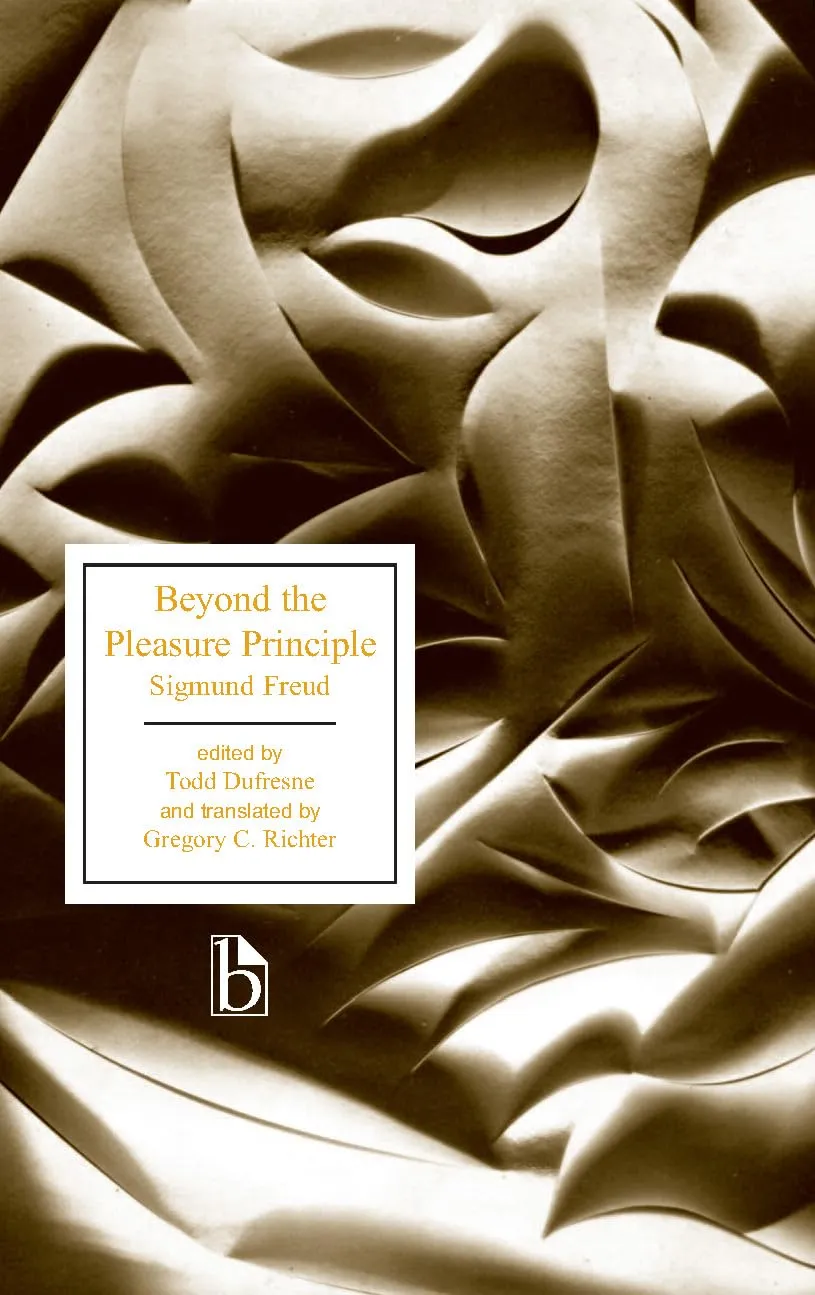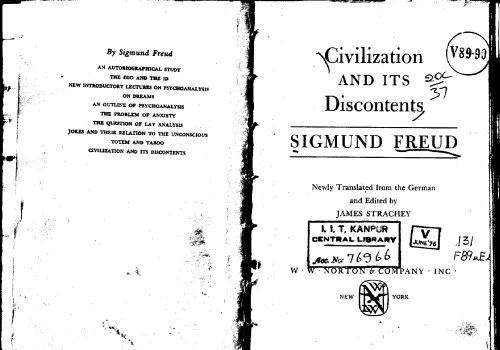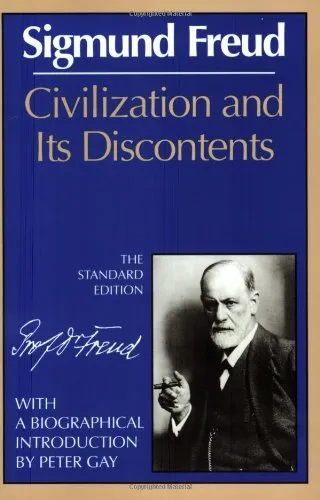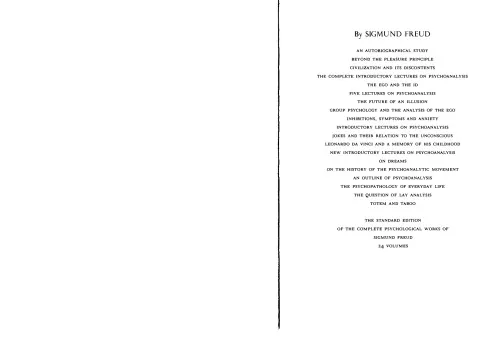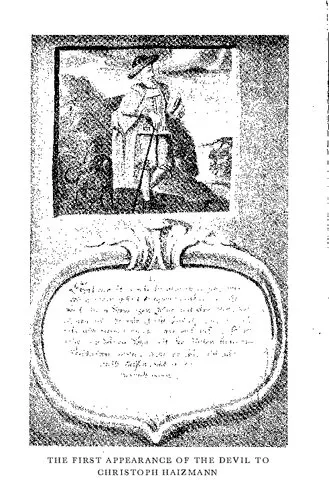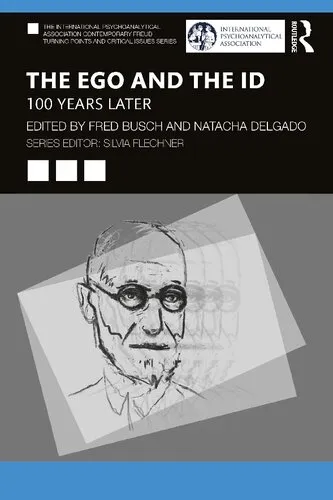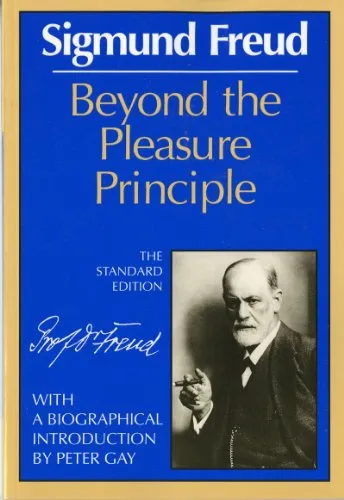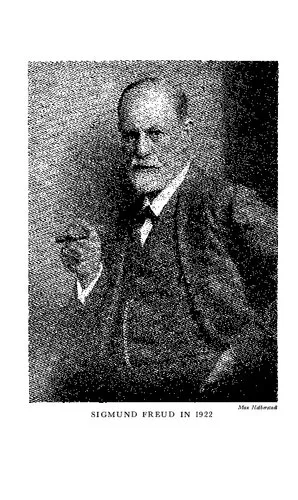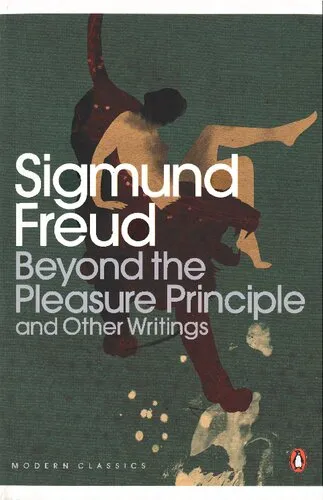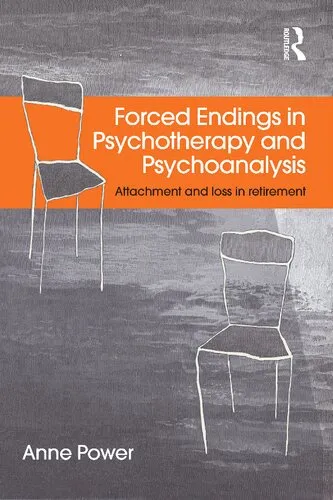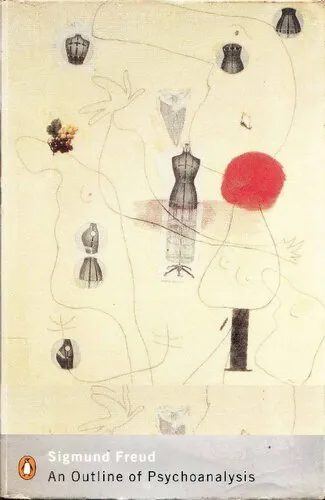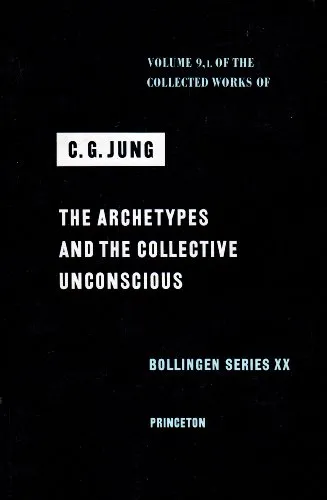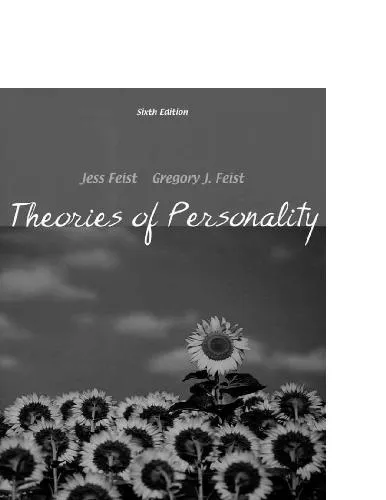Beyond the Pleasure Principle (Broadview Editions)
4.0
بر اساس نظر کاربران

شما میتونید سوالاتتون در باره کتاب رو از هوش مصنوعیش بعد از ورود بپرسید
هر دانلود یا پرسش از هوش مصنوعی 2 امتیاز لازم دارد، برای بدست آوردن امتیاز رایگان، به صفحه ی راهنمای امتیازات سر بزنید و یک سری کار ارزشمند انجام بدینکتاب های مرتبط:
معرفی کتاب
کتاب Beyond the Pleasure Principle نوشته زیگموند فروید، با ویرایش تاد دوفراسین، یکی از مهمترین آثار روانکاوی است که به بررسی فرایندهای ناخودآگاه ذهن انسان و چالشهایی که نظریهی اصلی «اصل لذت» را تحدید میکند، میپردازد. این کتاب در دورهای منتشر شد که فروید با دقت به بررسی نیروهایی میپرداخت که فراتر از جستجوی صرف لذت در رفتارهای انسانی نقش دارند.
خلاصهای مفصل از کتاب
در این کتاب، فروید به پرسشهایی پیرامون اینکه چرا انسانها گاهی رفتارهایی نشان میدهند که ظاهراً بر خلاف جستجوی لذت و ارضای شخصی است، میپردازد. او با معرفی مفاهیم جدیدی همچون تکرار اجباری و نیروی thanatos، یعنی تمایل به مرگ و تخریب، مرزهای جدیدی برای درک روان انسان میگشاید. این کار باعث شد تا فرویدیسم از یک سیستم ساده مکانیکگرا به یک نظریه جامعتر و پیچیدهتر تکامل یابد.
نکات کلیدی
- تغییر نگاه از اصل لذت به بررسی نیروهای متضاد در ذهن انسان.
- معرفی مفهوم تکرار اجباری و نقش آن در رفتارهای غیرمنطقی.
- تبیین نیروی thanatos به عنوان مقابلی برای Eros.
جملات معروف کتاب
"تمایل به زندگی همیشه با میل به مرگ مصادف است."
"تکرار، شالودهای است که بر آن گذشته ما مدام در حال بازسازی است."
چرا این کتاب مهم است؟
از دیدگاه روانکاوی، Beyond the Pleasure Principle به دلیل نوآوری فروید در بررسی جنبههای تاریکتر روان انسان اهمیت دارد. تئوریهایی که در این کتاب مطرح شدهاند، نمایش دهندهی گسترش افق فکری فروید و مواجههی او با محدودیتهای نظریهی کلاسیک است. این اثر نه تنها به عنوان یک نقطه عطف در تاریخ روانشناسی شناخته میشود، بلکه پایههای تحقیقات و نظریهپردازیهای بیشتر در زمینههای مختلف، از روانشناسی بالینی تا فلسفهی ذهن را فراهم میکند.
Introduction to "Beyond the Pleasure Principle"
Sigmund Freud's seminal work, "Beyond the Pleasure Principle," delves into the complexities of human psychology that exist beyond our innate pursuit of pleasure. Edited by Todd Dufresne, this Broadview Edition provides critical insights into one of Freud's most nuanced theories, encapsulating his profound exploration of the human mind's inner workings.
Detailed Summary
In "Beyond the Pleasure Principle," Freud challenges the prevailing notion that human behavior is primarily driven by the desire to seek pleasure and avoid pain—what he termed the "pleasure principle." Instead, Freud introduces the concept of the "death drive" (Thanatos), a fundamental impulse toward destruction, aggression, and a return to an inorganic state. The tension between Eros (life instincts) and Thanatos (death instincts) forms the basis for many psychological phenomena that cannot be explained by the pleasure principle alone.
The book begins with Freud's observations on repetitive behavior, particularly in patients traumatized by war and in children who play out distressing experiences. He postulates that such behaviors may not be a pursuit of pleasure but an expression of the compulsion to repeat experiences to master them. Freud proceeds to discuss the notion of the death drive as a counterpoint to the life-generating forces of Eros, suggesting that the interplay of these forces shapes human behavior in profound ways.
Freud's exploration of these dual instincts extends to the realm of psychoanalysis itself, examining how the death drive influences therapeutic processes and unconscious motivations. The work underscored a significant departure from Freud's earlier theories and laid the groundwork for further exploration of aggression and destructiveness in psychoanalysis and beyond.
Key Takeaways
- Introduction of the death drive, or Thanatos, opposing the life instincts (Eros).
- The concept of the compulsion to repeat, highlighting how individuals may re-enact traumatic experiences.
- The reconciliation and tension between pleasure-seeking behaviors and destructive impulses in human psychology.
- Freud's expansion of psychoanalytic theory to include instincts operating beyond the pursuit of pleasure.
Famous Quotes from the Book
"The pleasure principle...dominates the operation of the mental apparatus from the start."
"We may perhaps be driven to the hypothesis that there exists in the mind a compulsion to repeat which overrides the pleasure principle."
"The goal of all life is death; and looking backwards, one might say: the inanimate was there before the animate."
Why This Book Matters
"Beyond the Pleasure Principle" is a landmark in psychoanalytic literature that extends Freud's theoretical framework, offering a deeper understanding of the complexities of human nature. Its introduction of the death drive enriched discussions in various disciplines, influencing subsequent thinkers and continuing to be a pivotal reference in psychology, literature, and philosophy.
Freud's groundbreaking ideas challenge the optimistic view of humanity solely driven by pleasure-seeking, proposing a more intricate and dualistic view of the human psyche. By advocating for this expanded view, the book forces readers to reconsider intrinsic motivations and the inherent conflict between creation and destruction within ourselves.
This enriched edition, edited by Todd Dufresne, provides crucial context and clarity, ensuring contemporary readers grasp both the historical significance and the enduring influence of Freud's radical propositions. Whether you're a student of psychoanalysis, a literary scholar, or a curious reader, "Beyond the Pleasure Principle" remains an essential text for understanding the depths of human motivation and behavior.
دانلود رایگان مستقیم
شما میتونید سوالاتتون در باره کتاب رو از هوش مصنوعیش بعد از ورود بپرسید
دسترسی به کتابها از طریق پلتفرمهای قانونی و کتابخانههای عمومی نه تنها از حقوق نویسندگان و ناشران حمایت میکند، بلکه به پایداری فرهنگ کتابخوانی نیز کمک میرساند. پیش از دانلود، لحظهای به بررسی این گزینهها فکر کنید.
این کتاب رو در پلتفرم های دیگه ببینید
WorldCat به شما کمک میکنه تا کتاب ها رو در کتابخانه های سراسر دنیا پیدا کنید
امتیازها، نظرات تخصصی و صحبت ها درباره کتاب را در Goodreads ببینید
کتابهای کمیاب یا دست دوم را در AbeBooks پیدا کنید و بخرید
1383
بازدید4.0
امتیاز0
نظر98%
رضایتنظرات:
4.0
بر اساس 0 نظر کاربران
Questions & Answers
Ask questions about this book or help others by answering
No questions yet. Be the first to ask!
